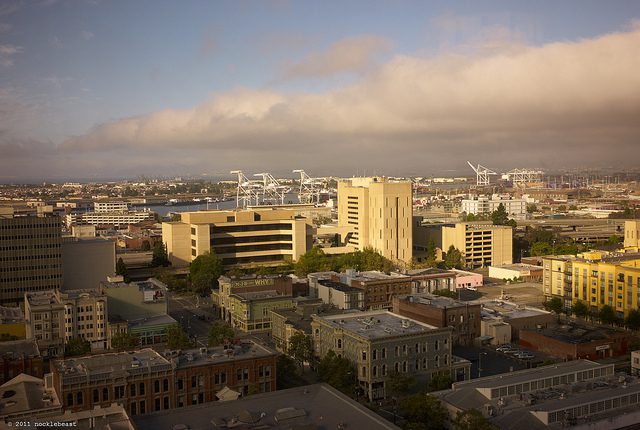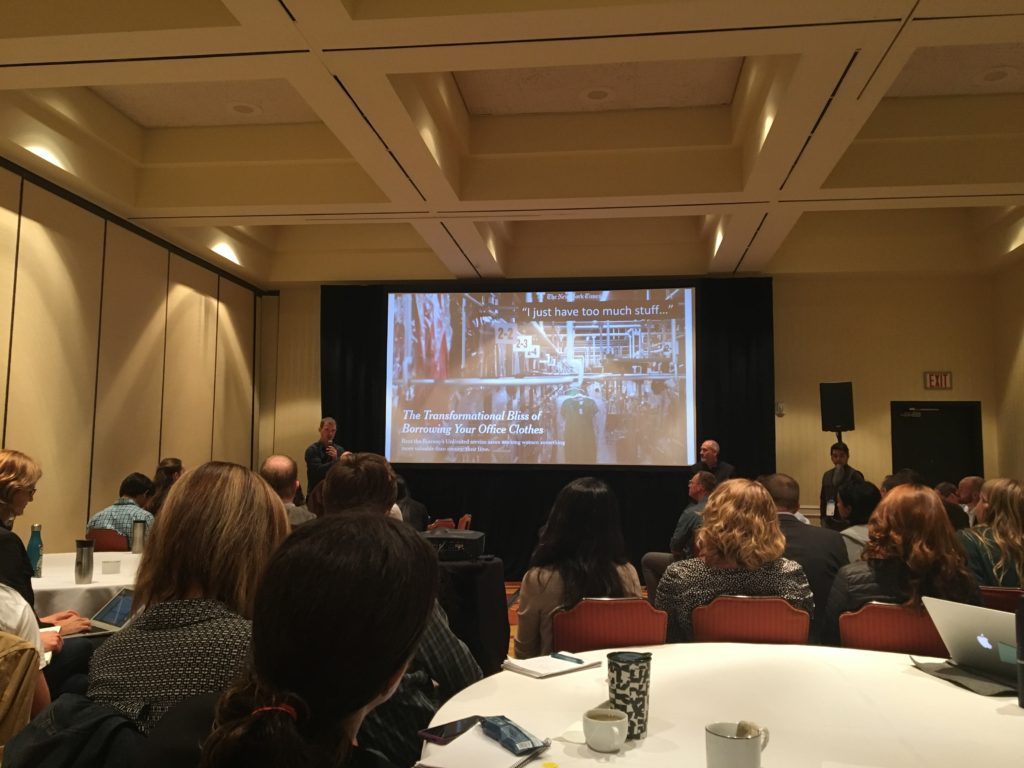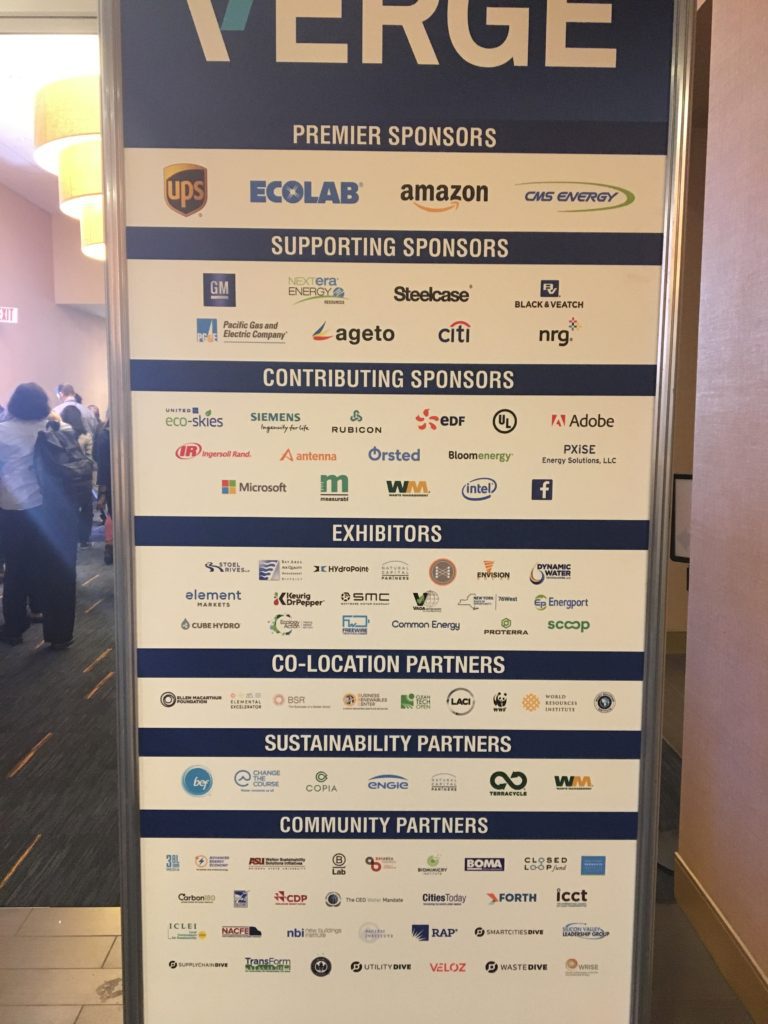
In mid-October 2018, I had the wonderful opportunity to attend VERGE 18 – a high-powered conference dedicated to accelerate a clean economy. The conference – hosted by GreenBiz – took place in Oakland, California, and brought together professionals in fields as (seemingly) disparate as as technology, business, government, transportation, and materials science. The conference convened more than 50 sessions targeting various sectors: energy, transportation and the economy. Established career professionals — among them the Global Head of Energy & Sustainability at HP Inc, Head of North America Operations at the Ellen MacArthur Foundation, Chief Sustainability Officer at Keurig, Director of Sustainability at Levi Strauss & Co, Director of Global Sustainability at McDonald’s and much more — all attended this event. Then there was me.
The panels I found most inspiring were dedicated to reimagining the current economic model: private companies solutions that fundamentally rethink the traditional linear industrial model – originally designed around economic growth from the extraction and processing of natural resources. To understand regeneration requires moving beyond the current fragmented economic system!
A Circular Economy is Built on Strong (and Wide-Reaching) Partnerships
Circular economy principles are central to this discussion and these panels allowed attendees to learn more about the cycles of birth, growth, death, and decay of a product, and how humans have become so dependent and inseparable from this system.
Many of the circular economy panels explored the current solutions several organizations and companies have assessed and their approach to tackle challenges that threaten human civilization. One session in particular hosted by the president of Pacific Institute, Global Head of Trucost Corporate Business, S & P Global, and Vice President, Corporate Sustainability at EcoLa talked about their tactics they have used to economically, environmentally, and socially benefit their establishment.
Another panel was dedicated towards addressing the most effective drivers of change. Is change most effective at the policy level, consumer level, or corporate level? The panel also discussed the significant impact of collaboration amongst partners. A closing remark and takeaway from this panel: Sustainability is tough and exhausting to achieve when it is left up to one entity.

The Aggregation Model and the Need for Meaningful, Standardized Metrics
Many companies have been keen on the idea of adopting a circular business model, but how do companies assess the benefits of new business models? The Meaningful Metrics for New Models panel, presented by Senior Associate Eliot Metzger at World Resources Institute, Minal Mistry at the Oregon Department of Environmental Quality, and Senior Scientist at UL Environment, recognized that as industries innovate, it is crucial to have a common framework to evaluate the environmental and social impacts of adopting a circular business model.
Mistry coined the measurement model: The Aggregation Model. This model will be used to look for partner or consultants that have the same approach. Many companies have their own approach to solve problems, instead of taking an interdisciplinary approach to look and assess challenges. The Aggregation Model presented prevailing approaches such as: a closed loop process as the priority and the shifts that will be needed to achieve it: a consumption based GHG inventory (including imports) and/or rewards to environmental outcomes.
The three-day summit was not only insightful, but inspiring. I am extremely fortunate to have attended, giving me the chance to physically see the leaders catalyzing on ideas to achieve a sustainable economy.


Kelsie Roberton received her Bachelor’s in Environmental Studies and Political Science with a specialization in Sustainability from DePauw University, where she worked closely with the Sustainability Leadership Program and the Honors Environmental Fellows Program. During 2018, Kelsie completed two internships: as a Sustainable Procurement Intern with ICLEI USA and as a Sustainable Business Intern with Green Seal, an environmental standard and certification organization. She hopes to pursue a career that will allow her the opportunity to further advance sustainability in the current economic market. She sees herself working for a company in their sustainability or social responsibility department to achieve this goal.